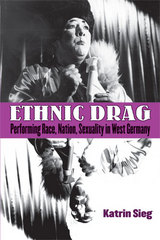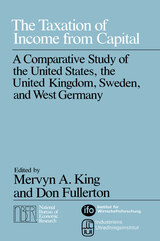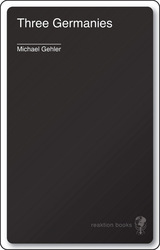
Using engaging case studies, Ethnic Drag traces the classical and travestied traditions of Jewish impersonation from the eighteenth century onward to construct a pre-history of postwar ethnic drag. It examines how, shortly after World War II, mass culture and popular practices facilitated the repression and refashioning of Nazi racial precepts. During a time when American occupation authorities insisted on remembrance and redress for the Holocaust, the Wild West emerged as a displaced theater of the racial imagination, where the roles of victim, avenger, and perpetrator of genocide were reassigned.
Ethnic Drag is an accessible and sophisticated, critical and entertaining book that examines the phenomenon of cultural masquerade in order to examine racial feeling, thought, and behavior in postwar German culture. Contributing to considerations of drag in postcolonial, feminist, and queer scholarships, this book will be of interest to people in German studies, theater performance, ethnic studies, and women's/queer studies.
Katrin Sieg is Associate Professor, Department of German and Center for German and European Studies, Georgetown University.


Though the Vietnam War did not directly involve West Germany, it was nonetheless a decisive catalyst for the era’s wider protest movements in that country, and it gave rise to an ardent anti-war discourse. Poetry and poetic writing were key to anti-war work. Hundreds of poems and related writings about Vietnam circulated in West Germany, yet they are almost entirely forgotten today. Poetic Writing and the Vietnam War in West Germany uncovers and explores some of that rich artistic production in order to present a new history of engaged poetic writing in West Germany in the 1960s and 1970s and to draw out distinctive characteristics of wider protest culture. In doing so, it makes the case for attending to marginal, non-canonical, or neglected literary and cultural forms, and for critical thinking about why they might, over time, have been obscured. The book also offers a case study for reflection on the representation of war, on ways in which German oppositional culture could imagine its others, and on the relationship of poetry to the historical world.


Since the defeat of the Third Reich in 1945, Germany has been in a continual state of turmoil and reinvention. In Three Germanies, Michael Gehler explores the political rollercoaster Germany has been riding since the Yalta Conference, which split postwar Germany into separate zones controlled by the Soviets, Americans, French, and British. Peace, however, was short lived; from 1948 to 1949 Stalin blockaded Berlin in an attempt to gain control over the largest city in Germany. Though the blockade was finally broken in May of 1949, soon after, Germany was officially split into the Federal Republic of Germany, or West Germany, and the German Democratic Republic, or East Germany. From then on, Germany became two very different countries with opposite political ideals, splitting families down the middle ideologically—and soon physically, with the erection of the Berlin Wall in 1961.
Though the Berlin Wall came down in 1989 and Germany was reunified, its problems were far from over: to this day Chancellor Angela Merkel and the Grand Coalition struggle to implement reform. Gehler’s timely and relevant study will appeal to readers interested in postwar diplomacy and the future of Germany, as it examines Germany’s attempts to find a government and a leader that will create a stable and secure country in the twenty-first century.
READERS
Browse our collection.
PUBLISHERS
See BiblioVault's publisher services.
STUDENT SERVICES
Files for college accessibility offices.
UChicago Accessibility Resources
home | accessibility | search | about | contact us
BiblioVault ® 2001 - 2024
The University of Chicago Press









